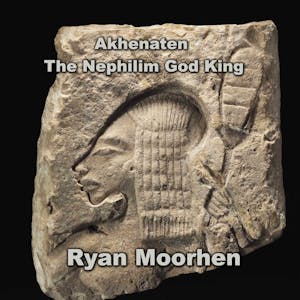Except for Cleopatra, no ruler of Ancient Egypt has provoked a greater flow of ink from the pens of historians, archaeologists, moralists, novelists, and Nephilim Researchers than the Pharaoh Akhenaten, who governed almost half the civilized world for a brief span during the fourteenth century BC. The reason for all this lively interest is easy to see, and he was the greatest Nephilim of them all. The historians, searching the conscious and unconscious that masquerades as the official records in Ancient Egypt, are often at a loss to protect the ruler's personality beneath all his trappings of power, the man beneath the divinity. In folktales with their element of sardonic ribaldry, the Nephilim Pharaoh is seldom represented as having human aspects. He is more significant than life in official utterances, a mere personification of kingship: only the office has any individuality, and the temporary holder is always cast in the same mold.
With Akhenaten, however, there is a departure from the norm. Here is a Nephilim Pharaoh who ostensibly broke with the sacrosanct traditions of a millennium and a half and showed himself as a human being in the intimate circle of his family, dandling his Nephilim offspring, kissing his wife or taking her on his knee, or leading his mother by the hand. Here is a ruler who does not appear as the all-conquering hero of gigantic size slaughtering the foes of Egypt or as the aloof divine King greeting one of the many deities as an equal. Here was a poet credited with having written hymns to his Nephilim God, which expect the Psalms of David, who introduced a new and vital art style of his conception to express his novel ideas. Above all, here is a courageous innovator who abandoned the worship of the multifarious gods of Ancient Egypt in their human and animal forms and substituted for them an austere monotheism with an abstract symbol by which to represent it.
